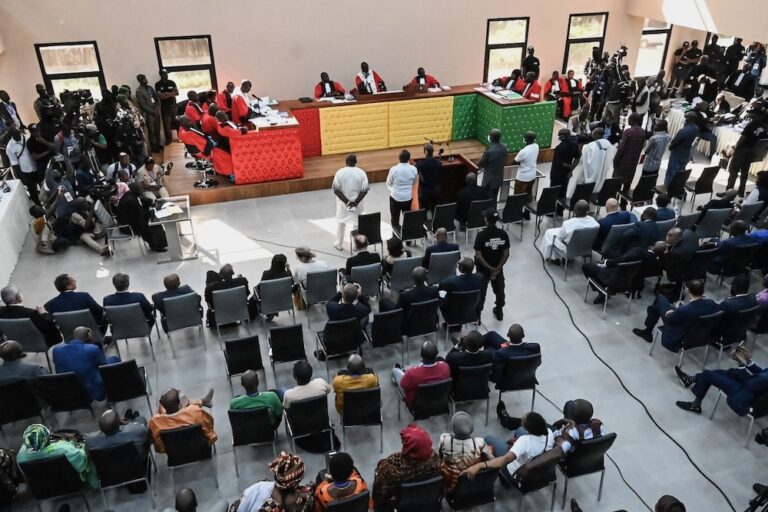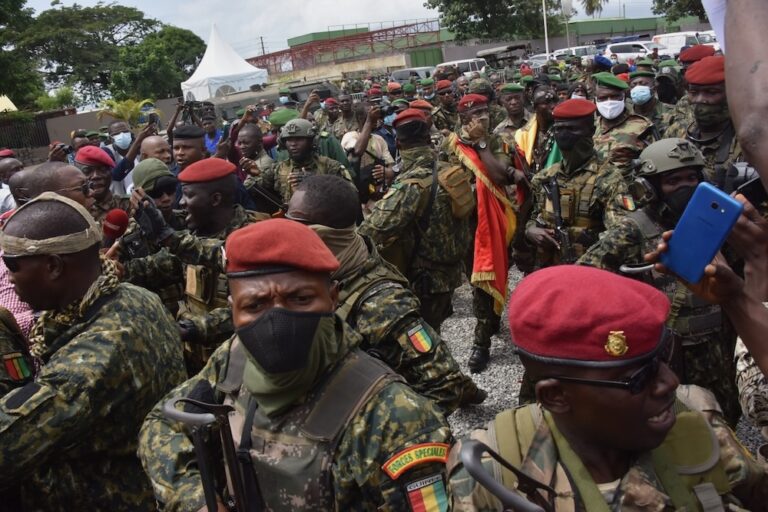Following the first free presidential elections in 52 years since independence, ARTICLE 19 has launched a report on free expression and the media.
(ARTICLE 19/IFEX) – 13 July 2010 – After the first round of presidential elections in Guinea, the first free presidential elections in 52 years since independence, ARTICLE 19 is launching a report on freedom of expression and the media in Guinea.
The report findings are based on a mission undertaken by ARTICLE 19 in the aftermath of the events of 28 September 2009, when more than a hundred and fifty people were killed or wounded, and women and girls were subjected to sexual violence including rape for taking part in a peaceful demonstration against a presidential bid by Captain Moussa Dadis Camara.
The report, titled Guinea: Journalists are the Forgotten Victims of Violence highlights acts of violence, intimidation and harassment perpetrated against Guinean journalists during and after the events of September 28, and analyzes the underlying causes behind these unpunished acts.
ARTICLE 19 also examines the legal framework governing freedom of expression over the past few decades and commends improvements made by the introduction of two acts on media freedom and the setting up of a new media regulatory body, the Higher Authority of Communication (HAC), promulgated on 22 June 2010 by the National Transition Council.
“While acknowledging the positive aspects of the new media acts, notably the abolition of prison sentences for media offences and improvements in the selection criteria of members of the media regulation authority among others, ARTICLE 19 remains concerned by the upholding of a number of restrictions incompatible with international standards and good practice”, says ARTICLE 19 Executive Director, Dr Agnes Callamard.
“Offenses of libel against the Head of State, slander and false report should not be part of a modern law. Guinean authorities should take the opportunity provided by the democratic transition to repeal all the provisions which unduly limit media freedom,” continued Dr Callamard.
The report makes recommendations to the soon to be elected new government, the media and journalists, NGOs, and African regional institutions and development partners.
The ARTICLE 19 report recommends that the government, to be formed after the election, should:
– Adopt a legal framework conducive to freedom of speech, media freedom and access to information in accordance with the highest international standards, especially amend the provisions of the new law including those on media offences such as slander, libel against the Head of State, sedition, and false report; repeal the provisions enhancing the protection holders of public office enjoy in cases of libel;
– Adopt as soon as possible an act on access to information;
– Transform State media into genuine public service media with editorial and operational independence and adequate financial means;
– Give clear instructions to security forces so that they always act in accordance with international law relating to human rights; respect for the right to life and an absolute ban on torture and other ill treatment, in accordance with international instruments;
– Enhance the independence of the media regulation body, by providing the HAC with all the necessary means to carry out its regulatory mission impartially and competently.
The report recommendations to the media and journalists working in Guinea outline the need to pay due diligence to the observance of rules of professional ethics and refuse any corrupt practice. They are urged to take into account public interest in the gathering and processing of information; to avoid ethnocentric processing of information and any kind of ethnic discrimination through the media.
After noting with concern that most journalists in Guinea, but also in West Africa, have never had any security training, although they are exposed to hostile environments in the exercise of their profession, the report recommends the development of a training module on security for journalists adapted to the situation in Guinea and the West African sub-region.


